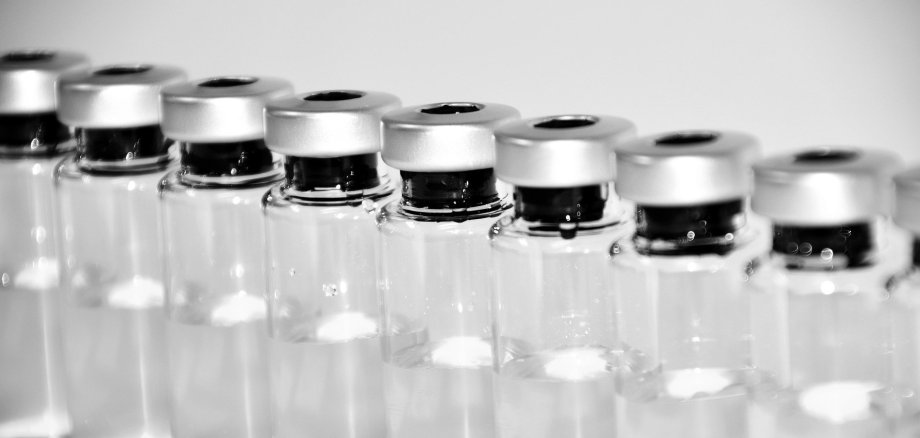Vaccinations with Novavax in mini-vaccination centres on 5 and 26 March
In December, the Covid vaccine of the company Novavax was approved in the EU. On 5 and 26 March, adults from Waldeck-Frankenberg can also be vaccinated with the vaccine - at the district's mini-vaccination centres in Korbach, Frankenberg, Bad Arolsen and Bad Wildungen. On both days, vaccinations are possible between 9 am and 4 pm without registration.
Novavax is a dead vaccine
"The new vaccine is a so-called dead vaccine, i.e. one that no longer contains any structures capable of reproducing," explains Dr Joachim Pries from the health department of the Waldeck-Frankenberg district. "It is produced using a process that has been well-established in vaccine production for years and is roughly comparable to the new mRNA vaccines in terms of its effectiveness." The vaccination stimulates the immune system to produce defence substances against the coronavirus. If the vaccinated person later comes into contact with this coronavirus, it is quickly recognised by the immune system and targeted. Vaccination does not produce any coronaviruses in the body. The protein particles contained in the vaccine cannot multiply.
Vaccinations from the age of 18
Anyone who is at least 18 years old and would like to be vaccinated can come to the mini-vaccination centres in Korbach in the small Hauerhalle, in Frankenberg in the lower building of the district hospital, in Bad Arolsen in the Bürgerhaus or in Bad Wildungen in the train station on 5 March. Again, it is not necessary to make an appointment in advance. The second vaccination to complete the basic immunisation and complete vaccination protection will then take place on 26 March. The vaccine has not yet been approved for booster vaccination. It is also not approved for children and adolescents under 18 years of age.
Novavax only in mini-vaccination centres
In contrast to vaccinations with the other vaccines, vaccinations with the Novavax vaccine will for the time being only be possible in the mini-vaccination centres and not in the general practitioners' practices in the district. This has been decided by the federal government and the state so far because limited quantities of the vaccine are currently available. Furthermore, it will be offered in particular to previously unvaccinated staff in medical and nursing facilities, as a facility-based vaccination obligation applies to staff in these areas from 16 March.
The following documents should always be brought to the vaccination: The health insurance card, an identity document and, if possible, the vaccination certificate. Further information is available on the website of the district at www.landkreis-waldeck-frankenberg.de/impfen.
